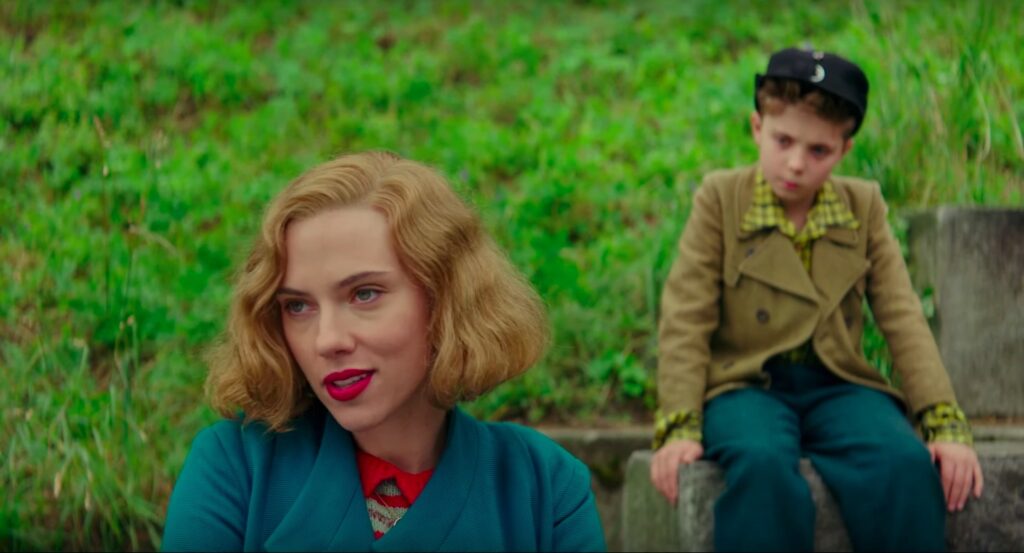
Why was Scarlett Johansson the only actor with a competent German accent? And am I the only one who was struck by Roman Griffin Davis’ resemblance to David Bennent? I find this correlation between the characters Jojo and Oskar Matzerath much more compelling than any aesthetic similarities that Taika Waititi’s Jojo Rabbit (2019) has to Wes Anderson’s criminally overrated Moonrise Kingdom (2012).
Jojo Rabbit, despite any controversy, is a film tied to the tradition of “feel good” WWII epics. Like Benigni before him, Waititi has a lot to say but communicates very little. Perhaps the greatest failure of this cute little yarn is that the death of Hitler really has no noticeable impact on Jojo. Waititi has spent so much time cultivating the relationship between Jojo and his invisible friend Hitler (layering this relationship with nuance, with a total sense of codependency), then, when Jojo hears about Hitler’s suicide in the bunker, there is no payoff, there is no upheaval of character, and there is absolutely no trauma.
Earlier in the film, when Jojo’s mother dies, Waititi gives the character and the audience time to experience that loss and grief. But maybe that’s because, unlike the death of Hitler, the death of Jojo’s mother Rosie represents the end of the only emotionally compelling relationship in the film; the death of the heart of the film. Scarlett Johansson, who plays Rosie, has such chemistry with Davis and makes so many confident and wholly natural choices in her performance that you immediately invest in that relationship 100%.
Jojo Rabbit isn’t a terrible film. It is cute, sweet, and mildly interesting about one-third of the time.
